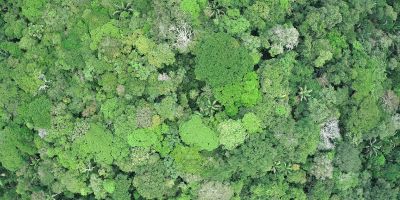Wider-reaching solutions urgently needed to reach realistic ‘net zero’

There should be greater investment in using a wider group of experts to make decisions about how the landscape is managed if the UK is to reach climate targets, a new report warns.
Tackling the climate emergency should involve those knowledgeable in the arts, business owners, farmers, landowners, developers and investors, the study says.
The interdisciplinary team of UK researchers, including Professor Guy Ziv from the School of Geography at the University of Leeds, have highlighted ‘multiple contradictions’ in the pathways to net zero climate targets and called for wider-reaching solutions to create a more sustainable future.
The Landscape Decisions Programme, led by the University of Leicester, has published a new research report with input from environmental scientists, ecosystem modellers, human geographers, humanities scholars, and other experts.
The UKRI-funded report stresses the potential negative impact of existing pathways to net zero climate targets, which include losses in the benefits of biodiversity, human wellbeing and cultural knowledge of the landscape.
The UK government has previously set a net zero target of 2050, through a proposed reduction in greenhouse gas emissions and better management of so-called ‘carbon sinks’ such as peatlands and forests, and with new carbon capture technologies.
Recommendations made by the interdisciplinary group include a greater focus on locally-devolved decisions in land-use solutions, as a one-size-fits all approach to net zero landscape management could be damaging in certain environments.
As well as studying the physical impact of landscape decisions, these should be taken within the full context of the social consequences of these changes; for example, in the case of sudden large-scale changes to farming.
The group do, however, recognise that “swift action is essential, otherwise we head deeper towards an inability to reach net zero carbon targets, contribute to biodiversity collapse, and promote societal disengagement with landscapes.”
[This report] is a reminder of that landscapes are multi-functional, providing a wide range of public goods, and net zero transitions must not end up trading off against other societal needs.
Dr Beth Cole is Senior Research Fellow for the Landscape Decisions Programme, based at the University of Leicester, and lead author for the report. She said: “To reach the net zero goals we need to make some challenging decisions about the way we use, manage, and interact with landscapes in the UK.
“These landscape decisions are dependent upon many factors including the environmental characteristics, and the geographic location of the land, but in this report, we also consider the wider social framing of these decisions and call for inclusive, place-specific net zero practices within landscapes that support both biodiversity and people.
“Collaborating across disciplines, this group of researchers together make a team that is greater than the sum of its parts and who have broken down some of the silos this urgent issue is normally approached from.”
Professor Ziv, a Professor in Socio-Environmental Systems from the School of Geography at Leeds was a co-author on the report. He said: “The report highlights the importance of social sciences in driving the transition to net zero in the UK.
“It is a reminder of that landscapes are multi-functional, providing a wide range of public goods, and net zero transitions must not end up trading off against other societal needs. Finally, we emphasize the value of decentralized planning and implementation of net zero transitions.”
Professor Heiko Balzter is a Professor of Physical Geography at the University of Leicester and Director of the Centre for Landscape and Climate Research, and is Chair of the Programme Coordination Team for the UKRI Landscape Decisions project.
He added: “Our landscapes in the UK are about to change faster than they have done in a long time. These changes are driven by the urgent need to prevent catastrophic climate change by achieving net zero emissions no later than 2050, reversing the loss of many endangered animal and plant species, as well as improving food security and livelihoods of our farmers.
“This report highlights some key recommendations for decision-makers on ethical consideration, participatory approaches and the trade-offs and synergies between different goals and interventions.”
Further information:
Image: Landscape view of Whinlatter, Cumbria. Credit: Beth Cole, University of Leicester
‘Landscape Decisions to Meet Net Zero Carbon: Pathways that consider ethics, socio-ecological diversity, and landscape functions’ is available in full at landscapedecisions.org.
Landscape Decisions is a Strategic Priorities Fund (SPF) programme funded by UK Research and Innovation (UKRI). The report includes input from environmental scientists, ecosystem modellers, human geographers, humanities scholars, and other experts from Leicester, Reading, Exeter, Bangor, Leeds, Nottingham, Wales Trinity Saint David, and Robert Gordon universities, plus expertise from Rothamsted Research and the UK Centre for Ecology and Hydrology.




